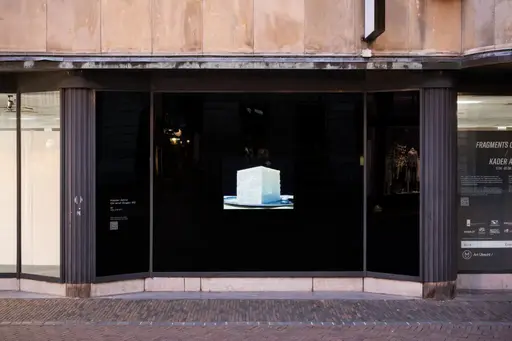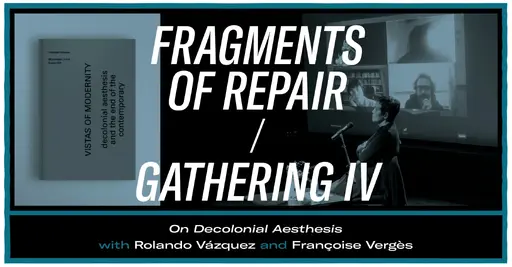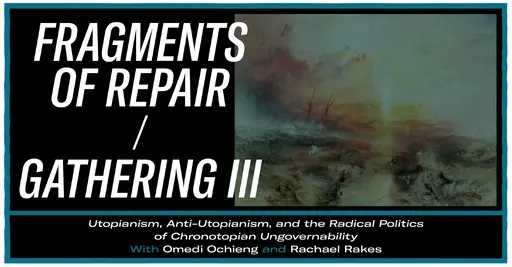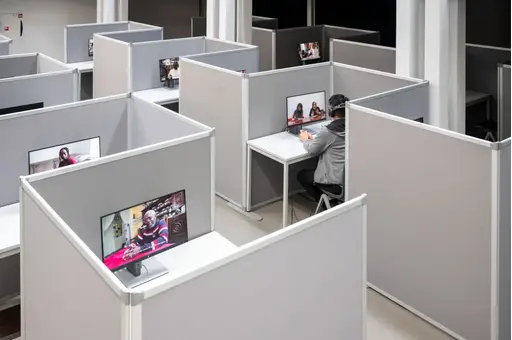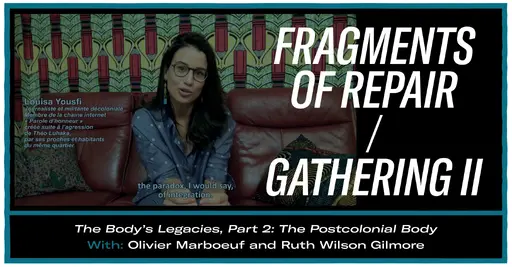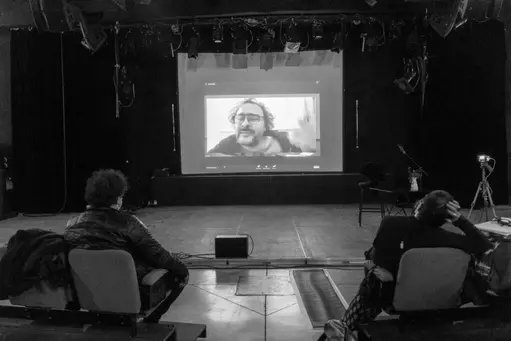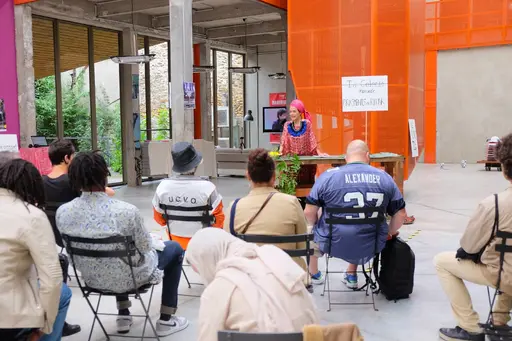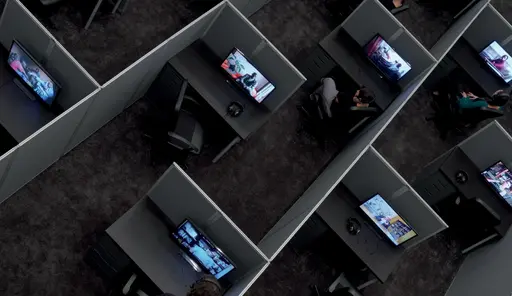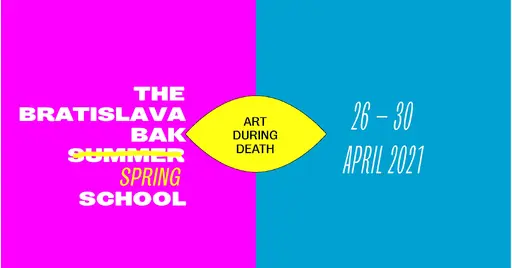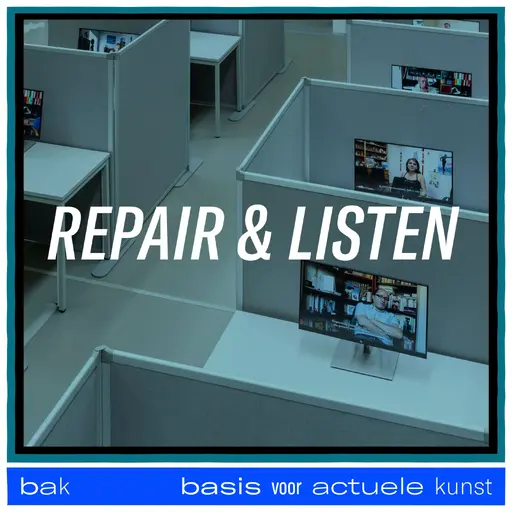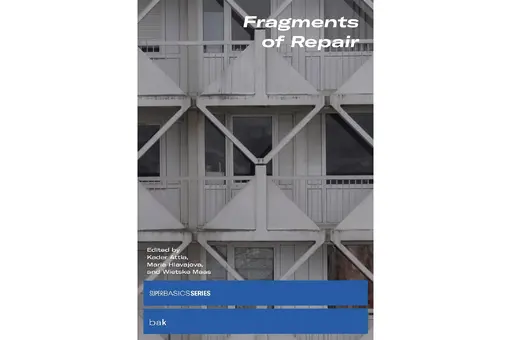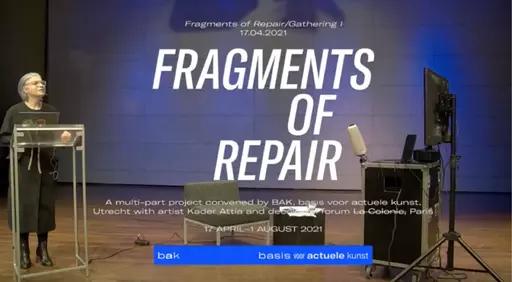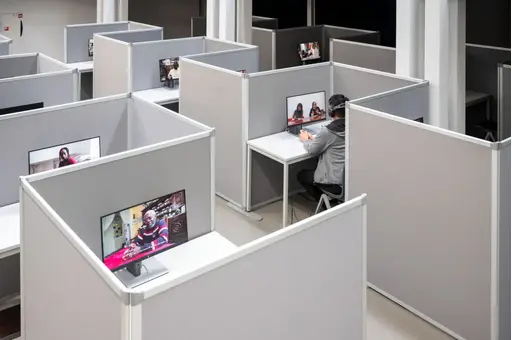
until 26 September 2021
Fragments of Repair
BAK, basis voor actuele kunst, Utrecht proudly presents Fragments of Repair, a multi-part project consisting of an exhibition, collective study program, and series of gatherings, co-convened with artist Kader Attia and decolonial forum, Paris.
Fragments of Repair
In Fragments of Repair, artist Kader Attia proposes the notion of decolonial repair as a tactic to engage with the planetary urgencies of collective mental health in a world wounded by the Covid-19 pandemic. Injury, wound, and repair have been key concepts across Attia’s artistic practice, especially in relation to the material and immaterial injustices of colonial violence that persist into the present. The current conditions bring these injustices into sharper relief, while adding additional injuries through chronic uncertainty, social isolation, exhaustion, loss, and fear. What pathways can repair—not a return to past ways, but an itinerary shaped by demands for decolonization and the politics of restitution—offer to life in and out of the viral and psychological pandemonium?
The project unfolds through multiple dispersed yet interconnected “fragments,” including Fragments of Repair/Kader Attia, an exhibition by Attia at BAK in Utrecht; Fragments of Repair/La Colonie Nomade, a collective study program convened by Françoise Vergès and hosted at La Dynamo de Banlieues Bleues, Pantin, Paris; and Fragments of Repair/Gatherings, an online series of lectures, conversations, screenings, and assembly forums convened by BAK on bakonline.org. Over the course of the program, Attia engages in the production of a new work in the form of a podcast and sound installation. It probes repair as a concrete practice to counter the psychological impact of living through a pandemic, realized in collaboration with students in the city of Utrecht, Utrecht University, and a number of partners in the field of higher education and medical research. Fragments of Repair has been conceptualized by Kader Attia and Wietske Maas in conversation with Maria Hlavajova, Rachael Rakes, Françoise Vergès, and the BAK Team.
The project unfolds through multiple dispersed yet interconnected “fragments,” including Fragments of Repair/Kader Attia, an exhibition by Attia at BAK in Utrecht; Fragments of Repair/
Exhibition Fragments of Repair/Kader Attia
Fragments of Repair/Kader Attia is the first comprehensive exhibition of Attia’s work in the Netherlands. The exhibition features a constellation of the artist’s video, collage, and sculptural works grappling with subjects ranging from architecture as a form of social and psychological control, to mental health care from a decolonial perspective, and the notion of restitution as the practice of social justice. These issues are intertwined with the artist’s continued inquiry into repair as decolonial strategy, and question how the processes of repair in their social, psychological, and material dimensions play out in a pandemic age.
BAK, basis voor actuele kunst, Utrecht
17 April–26 September 2021 (UPDATE – opening: 5 June 2021)
BAK, basis voor actuele kunst, Utrecht
17 April–26 September 2021 (UPDATE – opening: 5 June 2021)
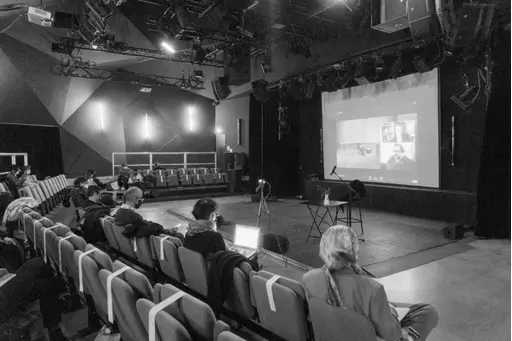
Study Program Fragments of Repair/ La Colonie Nomade
Fragments of Repair/ La Colonie Nomade is a collective study program conceptualized and convened by political theorist, feminist, and decolonial activist Françoise Vergès. Fragments of Repair/ La Colonie Nomade expands on the notion of decolonial repair, drawing on decolonial strategies as a means of meaningful survival and collective acts of repair in spite of the cruel capitalist “economy of exhaustion.” Fragments of Repair/La Colonie Nomade marks the continuation of La Colonie[1] in a nomadic form, and is hosted at La Dynamo de Banlieues Bleues, Pantin, Paris for the duration of the study program.
La Dynamo de Banlieues Bleues, Pantin, Paris
17 April–3 July 2021
La Dynamo de Banlieues Bleues, Pantin, Paris
17 April–3 July 2021
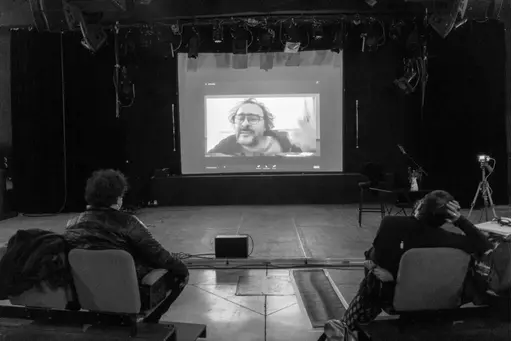
Public Program Fragments of Repair/Gatherings
Fragments of Repair/Gatherings involves a hybrid online/offline series of lectures, conversations, screenings, and assembly forums convened by BAK around the theory and practice of repair.
bakonline.org
17 April–26 September 2021
bakonline.org
17 April–26 September 2021
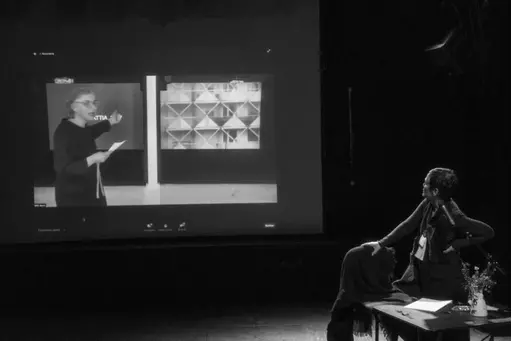
New Work by Kader Attia
Throughout the duration of Fragments of Repair, Kader Attia engages in creating a new work in the form of a gradually unfolding podcast and sound installation in twelve parts, commissioned and produced by BAK and realized in collaboration with Utrecht University and a number of partners in the field of higher education and medical research. Episodes are based upon one-on-one conversations between the artist and Utrecht or internationally-based academics, students, or activists from fields such as philosophy, history of science, economics, psychoanalysis, psychiatry, and social epidemiology. Drawing on transcultural epistemologies and lived experiences, the work investigates “repair” as a concrete practice to counter the psychological impact of living through a pandemic. The recorded conversations form part of an archive that is accessible both online and as part of a roaming listening-space installation to be exhibited in various academic and health care institutions across the Netherlands.
Kader Attia
Kader Attia is an artist who explores the wide-ranging effects of western cultural hegemony and colonialism. Central to his inquiry are the concepts of injury and repair, which he uses to connect diverse bodies of knowledge, including architecture, music, psychoanalysis, medical science, and traditional healing and spiritual beliefs. Throughout his multimedia practice—ranging from sculpture to film installation—reparation does not mark a return to an intact state, but instead makes visible the immaterial scars of psychic injury. This approach is informed by Attia’s experience of growing up between Algeria and the Paris banlieues.
Attia’s work has been shown in biennials such as the Shanghai Biennial; Gwangju Biennial; Manifesta, Palermo; Venice Biennial, Venice; and Documenta, Kassel. Notable solo exhibitions include Kader Attia. Remembering the Future, Kunsthaus Zürich, Zurich, 2020, The Museum of Emotion, The Hayward Gallery, London, 2019; Scars Remind Us that Our Past is Real, Fundacio Joan Miro, Barcelona, 2018; Roots also grow in concrete, MAC VAL, Vitry-sur-Seine, 2018; Repairing the Invisible, SMAK, Ghent, 2017; The Injuries are Here, Musée Cantonal des Beaux Arts, Lausanne, 2015; contre nature, Beirut Art Center, Beirut, 2014; and Continuum of Repair: The Light of Jacob’s Ladder, Whitechapel Gallery, London, 2013. Attia has shown in group exhibitions at venues such as MoMA, New York; Tate Modern, London; and Centre Pompidou, Paris. Attia has been awarded the Marcel Duchamp Prize (2016), the Joan Miró Prize (2016), and the Yanghyun Art Prize (2017). In 2016, Kader Attia foundedLa Colonie in Paris’s Gare du Nord area as an open space for decolonial thinking, debate, and cultural activism. Attia is the appointed curator for the 12th Berlin Biennale in 2022. Attia lives and works in Berlin and Paris.
La Colonie
Founded by Kader Attia,La Colonie opened its doors on 17 October 2016, the anniversary of the 1961 Paris massacre in which police officers attacked and killed demonstrators for Algerian independence. From 2016-2020, La Colonie was located in Paris’s Gare du Nord area. Due to the Covid-19 pandemic, it was forced to close its doors and begin a nomadic existence, initiated through the project Fragments of Repair in collaboration with BAK, basis voor actuele kunst, Utrecht. La Colonie is an open forum for decolonial thinking, debate, and cultural activism. Together with artists, researchers, activists, local residents, different cultural and political communities, and various publics, La Colonie seeks to decolonize the conditions of knowledge production and the everyday structures of living together; fathoming a future disentangled from the legacies of colonial violence.
[1] Between October 2016–July 2020La Colonie, co-founded by Kader Attia, was an independent space for decolonial thinking, debate, and cultural activism located in Paris’s Gare du Nord area. In summer 2020, La Colonie closed its doors due to the Covid-19 pandemic. In the framework of this project, La Colonie assumes a nomadic existence in collaboration with BAK.
Kader Attia
Kader Attia is an artist who explores the wide-ranging effects of western cultural hegemony and colonialism. Central to his inquiry are the concepts of injury and repair, which he uses to connect diverse bodies of knowledge, including architecture, music, psychoanalysis, medical science, and traditional healing and spiritual beliefs. Throughout his multimedia practice—ranging from sculpture to film installation—reparation does not mark a return to an intact state, but instead makes visible the immaterial scars of psychic injury. This approach is informed by Attia’s experience of growing up between Algeria and the Paris banlieues.
Attia’s work has been shown in biennials such as the Shanghai Biennial; Gwangju Biennial; Manifesta, Palermo; Venice Biennial, Venice; and Documenta, Kassel. Notable solo exhibitions include Kader Attia. Remembering the Future, Kunsthaus Zürich, Zurich, 2020, The Museum of Emotion, The Hayward Gallery, London, 2019; Scars Remind Us that Our Past is Real, Fundacio Joan Miro, Barcelona, 2018; Roots also grow in concrete, MAC VAL, Vitry-sur-Seine, 2018; Repairing the Invisible, SMAK, Ghent, 2017; The Injuries are Here, Musée Cantonal des Beaux Arts, Lausanne, 2015; contre nature, Beirut Art Center, Beirut, 2014; and Continuum of Repair: The Light of Jacob’s Ladder, Whitechapel Gallery, London, 2013. Attia has shown in group exhibitions at venues such as MoMA, New York; Tate Modern, London; and Centre Pompidou, Paris. Attia has been awarded the Marcel Duchamp Prize (2016), the Joan Miró Prize (2016), and the Yanghyun Art Prize (2017). In 2016, Kader Attia founded
Founded by Kader Attia,
[1] Between October 2016–July 2020
Long-Term ProjectPropositions for Non-Fascist Living
with: Kader Attia, Souleymane Bachir Diagne, Maria Hlavajova, La Colonie, Sven Lütticken, Wietske Maas, Catherine Malabou, Olivier Marboeuf, Achille Mbembe, Wayne Modest, Omedi Ochieng, Stefania Pandolfo, Rachael Rakes, Rolando Vázquez, Françoise Vergès, Ru
Fragments of Repair/La Colonie NomadeFragments of Repair/GatheringsFragments of Repair/Kader Attiarelated
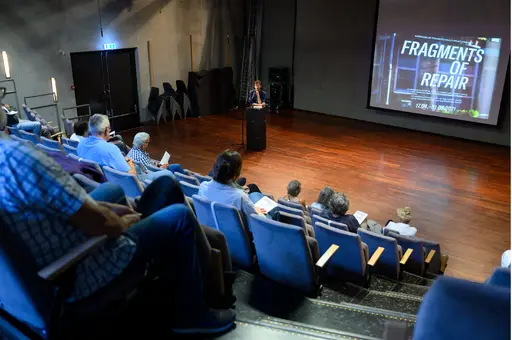
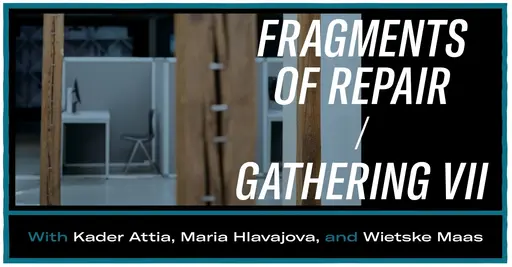
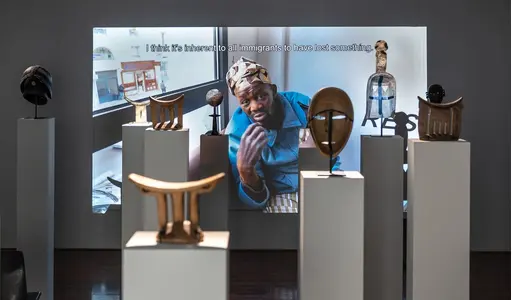
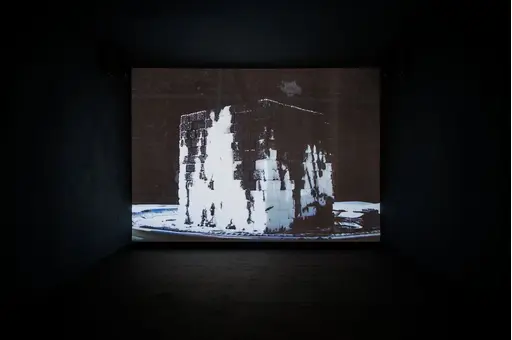
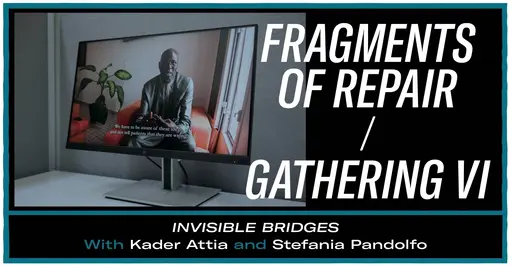
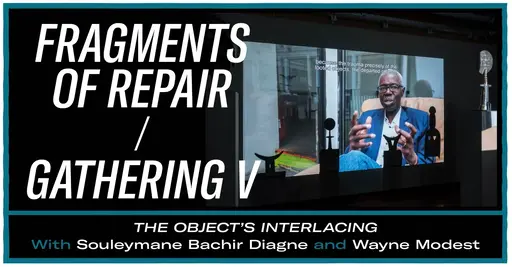
Work by Kader Attia at Stadhuisbrug, Utrecht
